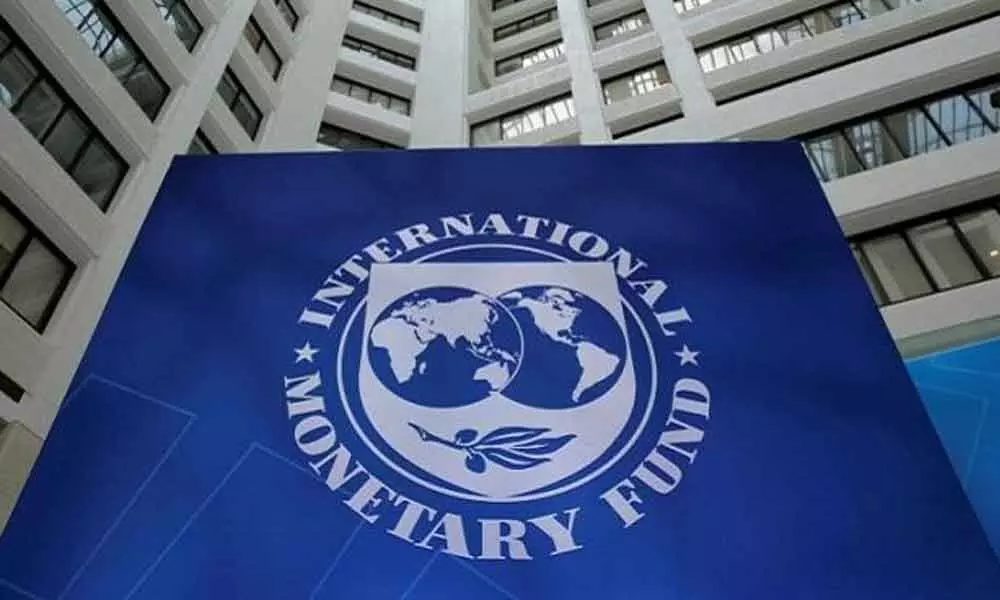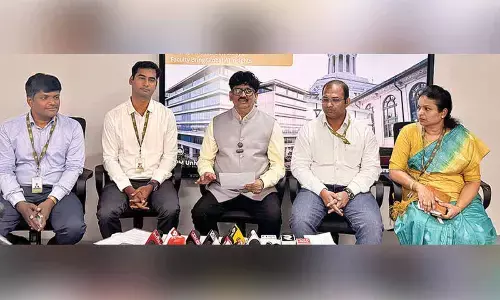IMF take on India's economy

International Monetary Fund (IMF) on Monday lowered India's growth forecast for 2019-20 to 4.8 per cent.
International Monetary Fund (IMF) on Monday lowered India's growth forecast for 2019-20 to 4.8 per cent. This latest forecast from the global financial body is a drastic reduction from October last year when it projected 6.1 per cent growth for India during the current fiscal year.
IMF Chief Economist Gita Gopinath, who released an update to IMF's World Economic Outlook (WEO) in Davos on the eve of World Economic Forum (WEF), cited fall in rural demand and lower credit offtake for cutting India's growth forecast.
It also blamed crisis in non-banking financial companies. However, IMF expects better growth in the country in the next financial year and thereafter thanks to cut in corporate tax and other stimulus measure.
It projected 5.8 per cent growth in India's GDP in FY21 and 6.5 per cent in FY22. However, these projections are also lower than what IMF forecast in October last year. It estimated 7 per cent economic upswing in FY21 and 7.4 per cent growth in FY22.
Further, the IMF said that lower growth in India has adversely impacted global economy, forcing it to revise downwards the global growth forecast. Now, it estimates a 2.9 per cent global growth in 2019, which is a downward revision of 0.1 percentage point from its October projection. It cut projection for 2020 by similar percentage point to 3.3 per cent and by 0.2 per cent to 3.4 per cent in 2021.
According to the global entity, slowdown in India had impacted global forecasts by almost 80 per cent. This show how important India's economic upswing is for the global economy. Underlining the need for pushing governance reforms, IMF said India needs to re-stimulate growth without aggravating the non-performance assets (NPAs) problem in the country's financial system.
Industry leaders also agree with IMF's assessment on India's GDP growth. Biocon chief Kiran Mazumdar-Shaw pointed out that GDP growth had been declining for the past several quarters. She also sought immediate measures to revive the growth.
But given the current political climate in the country owing to widespread agitations and protests against CAA (Citizenship Amendment Act) and NRC (National Registry of Citizens), it is not going to be easy for the Narendra Modi government to bring the country's focus back on economic issues and growth.
Furthermore, initiating structural economic reforms, which are essential for spurring economic growth, is a far cry unless political situation improves. Besides, ruling BJP that Prime Minister Modi represents has been losing one Assembly election after another. The saffron party seems to be facing challenging times even in Delhi where Assembly elections are scheduled for the first week of February.
Adding fuel to the fire, inflations has hit a five-year high of 7.35 per cent in December thanks to pricier vegetables. That way, inflation has breached upper limit of six per cent set by the Reserve Bank of India. This may restrain the government from initiating hard steps in economic space.
In this context, acceleration in economic growth may not be a reality during next financial year and beyond as projected by IMF. So, India which is close to losing coveted 'fastest growing major economy in the world tag' this financial year will have to wait for longer time to regain the tag.

















